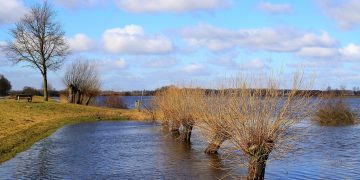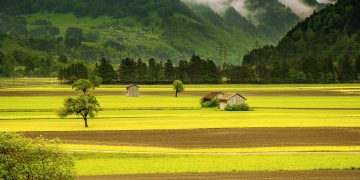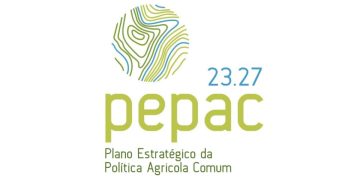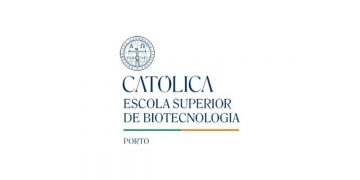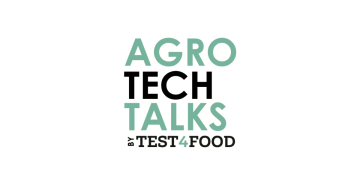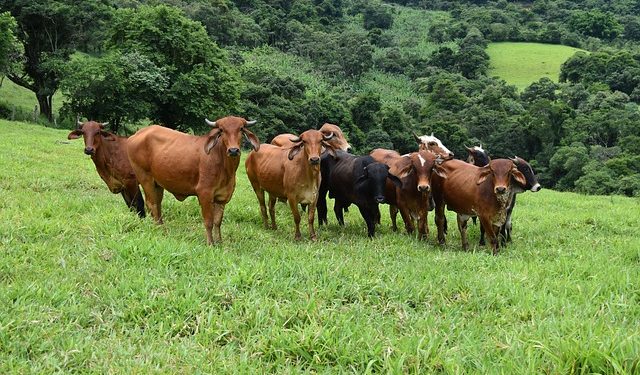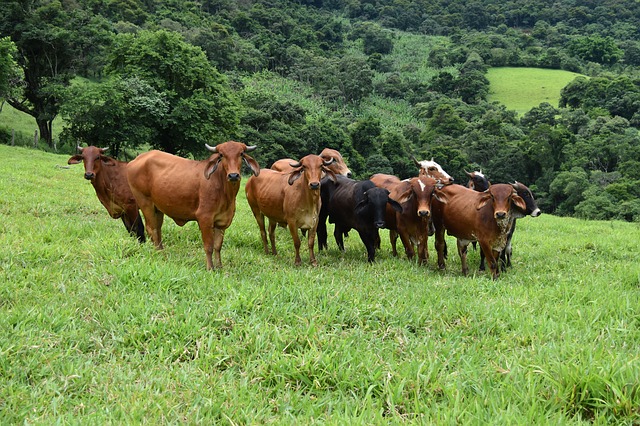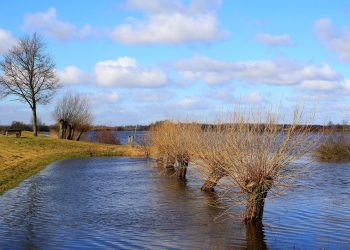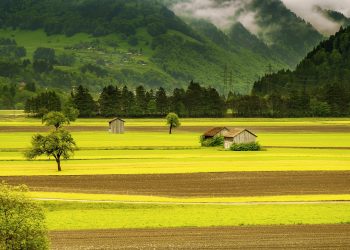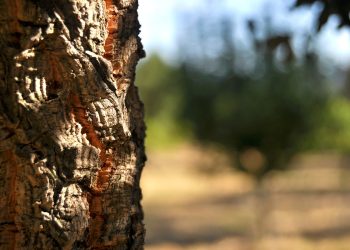Zimbabwean farmer Obert Chinhamo believes in quality over quantity when generating value from cattle.
“It is good to have a lot of cattle but they must bring value to the farmer in producing more beef or milk. This can be realized with the right breed of cattle without having too many animals,” explains Chinhamo during a walk around at his 380-hectare Biano Farm.
Genetic diversity has helped African cattle breeds adapt to the continent’s wide range of environments on the continent. But as this adaptability is increasingly threatened by climate change, scientists in Africa and Europe are using gene editing technology to make African cattle and poultry more resilient to heat stress, a productivity risk linked to global warming.
Heat stress is a condition that arises when an animal is no longer able to adequately regulate its body temperature — in short, it overheats. The condition, which makes animals more susceptible to disease, is a key cause of production losses in farm animals in tropical countries that experience year-round hot temperatures.
Cattle are treasured assets globally as a source of income, food and nutrition. In developing countries, particularly Africa and Asia, livestock have social and cultural importance. Cattle are a measure of wealth and status in many communities where they are used in cultural ceremonies.
The livestock sector also supports the livelihoods of some 1.3 billion people, including 600 million smallholder farmers, according to the UN’s Food and Agriculture Organization (FAO).
While Africa’s native cattle breeds have successfully been bred over hundreds of years to adapt to challenging environments, they still perform below expected levels, says Appolinaire Djikeng, director of the Center for Tropical Livestock Genetics and Health(CTLGH) in Scotland.
With the human population expected to reach 9.5 billion by 2050, with 25 percent of that total living in Africa, African livestock is under pressure to produce more meat, milk and eggs while having less impact on the environment.
“We hope our work, by tailoring and applying the advanced breeding technologies routinely used in the West to livestock in Africa, will lead to an improvement in the health, welfare and productivity of native African breeds, while retaining their ability to survive in the challenge conditions and minimising their impact on the environment,” Djikeng said in an interview.
Researchers at the Centre for Tropical Livestock Genetics and Health (CTLGH) are using a previously identified cattle gene named SLICK, which is linked to heat stress and characterized by a reduction in hair length in several cattle breeds in the Caribbean. This trait helps cattle to better regulate their body temperature in hot and humid conditions. By developing a genome editing approach, scientists have introduced the SLICK trait into cattle breeds in Africa.
Just as copy editing involves making specific changes to text, genome editing allows scientists to make specific changes to the genomes of livestock to achieve or suppress various traits, Simon Lillico, researcher at CTLGH and a research fellow at the Roslin Institute, explained. As a result, scientists can modify a range of animal characteristics, such as how many offspring they are likely to have or how well they cope with high or low temperatures or disease resistance.
“Cattle play a vital role and provide nutrition, income, draught power and fertilizer for millions of poor rural livestock keepers in Africa,” Lillico said. “By investigating improvements to thermal tolerance in cattle, we hope to offer additional solutions to allow African farmers to adapt to a warming climate.”
Cattle breeds carrying the SLICK gene are better able to cope with temperatures increases and are better suited to areas where temperatures are predicted to increase due to climate change, said Shirley Tarawali, assistant director general at the International Livestock Research Institute (ILRI).
A recent study found that in Tanzania, milk production in dairy cows dropped by 0.5 litres for every unit increase of temperature. The study found a natural range of around 25 units in Tanzania, indicating that the impact of temperature stress on milk yield is extremely significant.
“To improve their performance and thus the welfare of smallholder farmers, we need to ensure that we have the ‘most appropriate’ breed-type for each context,” said Tarawali, acknowledging that genetic editing is not a silver bullet, but an important tool in the science toolbox.
Tarawali pointed out that even with the genomics technology in place, several barriers remain. Scientists still need to identify a genetic variant that makes a major contribution to the trait they seek to improve. For example, a pre-existing variant that, by itself, allows a cow to remain healthy and productive at higher temperatures.
Though livestock production has been blamed for contributing to global warming through the release of methane, a greenhouse gas responsible for global warming, scientists say that problem can be addressed.
“With scientific innovations available at the moment, a well-fed animal will be emitting less methane,” said Djikeng, noting that some animals inherently emit less methane. Genomic tools linked to appropriate animal breeding strategies can help in identifying and selecting these types of animals.
Chinhamo is one of a growing league of farmers embracing the science of genomics to improve their livestock to get more milk and meat in a changing climate. He believes improved animal breeds offer better returns in terms of meat, milk and income from breeding and selling quality bulls, which he sells for an average of US$2,500.
Chinhamo, who began farming more than 30 years ago, started breeding Simmental cattle in 2006 after being attracted to the breed’s reputation for producing more milk and meat and being easy to cross breed, with a high fertility rate.
“With land being a limited resource, intensive livestock farming is ideal because we can keep fewer, more productive animals on small pieces of land,” observed Chinhamo, who believes farmers can produce more from less by improving the quality of their livestock and following proper animal husbandry.
A breed originally from Switzerland, Simmental has spread across the world and its notable features include a large frame with good muscling. Cows can weigh around 500-900kgs and bulls up to 1300kgs.
“We aim that our cows calve every year and I prioritize high nutrition and health for my animals,” said Chinhamo, who is also president of the Simmental Simbrah Society of Zimbabwe, a grouping of Simmental and Simbrah cattle breeders.
“We are trying to breed medium frame animals which weigh between 500 and 650 kg because the bigger they get, the more expensive they are to maintain during the winter months.”
Chinhamo grows and makes livestock feed on his farm to feed more than 300 herd of Simmental cattle during the dry winter season from May to December. Silage is made from intercropping sorghum and maize, which he feeds his cattle during the dry season to complement open field grazing.
Noting minimum rainfall in his area, Chinhamo has adopted climate-smart approaches like crop intercropping and growing drought-tolerant fodder crops such as Lucerne and Katambora Rhodes grass for pastures, as well as for silage for feeding livestock during lean months. He intercrops sorghum varieties like sugar graze with maize, which are then cut and silaged.
African leaders are increasingly recognizing that the continent must invest in research, innovation and application to make technologies like gene editing accessible.
In 2007, African Union member nations committed to allocating one percent of their Gross Domestic Product to research and development. They have also drawn up a continental blue print for science, the African Union’s Science, Technology and Innovation Strategy for Africa (STISA 2024).
Despite this commitment, many African countries still lag behind in funding science.
“It is very disappointing that African countries are largely still not investing nearly enough for science and technology, let alone in agricultural science and livestock. When you get to livestock research the proportion is even lower,” lamented Djikeng, who received the International Nelson Mandela Justice Award in 2020 in recognition of his research and agricultural development work in making a difference in the lives of others.
By Busani Bafana
O artigo foi publicado originalmente em Cornell Alliance for Science.

